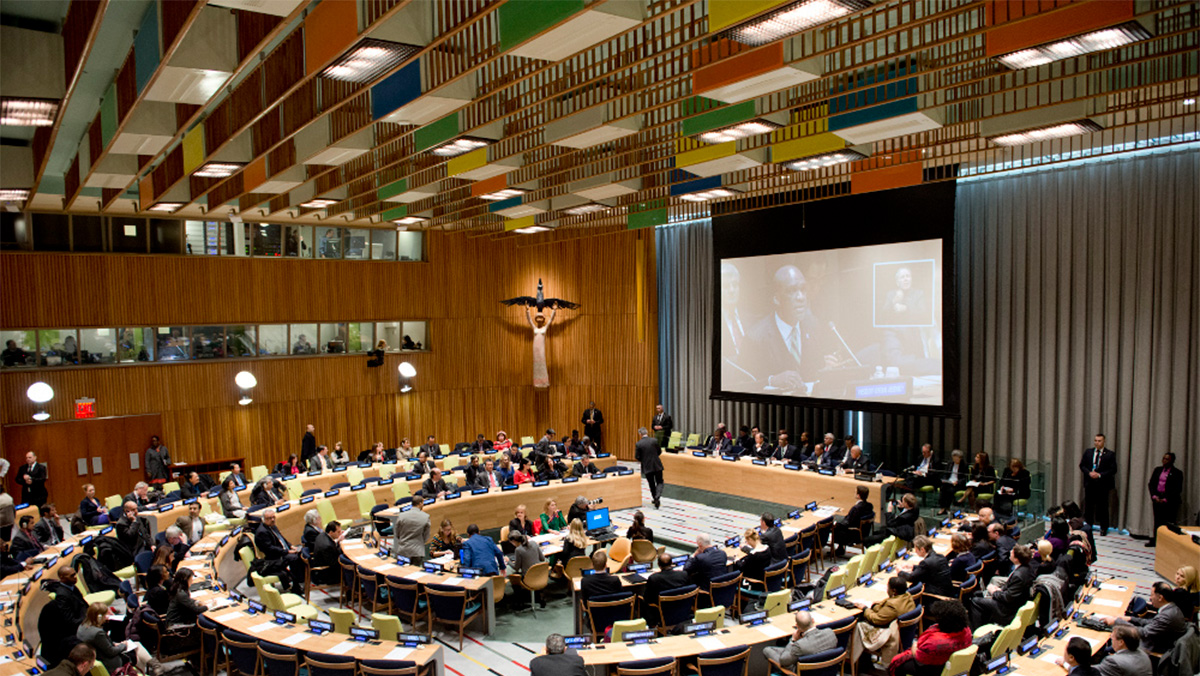
In line with General Assembly resolution 78/138, the President of the General Assembly for its seventy-eighth session will convene a one-day informal interactive dialogue "to review world commodity trends and prospects and possible strategies for economic and export diversification, as well as value addition for sustainable development, particularly in commodity-dependent developing countries, with the aim of sharing experiences and lessons learned."
Objective
The event will discuss the persistence of commodity dependence, examine the emerging concept of a modern-day commodity dependence trap that hinders diversification in developing countries, and discuss possible pathways for countries to diversify into higher value-added activities and implement a sustainable structural transformation. The event will spotlight the critical role of economic diversification for developing countries to move out of commodity dependence and accelerate their progress towards sustainable development.
The event also marks 60 years of discussion on the relationship between commodities trade and development in the context of UNCTAD.
Format
The event will consist of an opening segment, two interactive panels, and a closing segment. In addition to Member States and Observers of the General Assembly, the meeting will be open to the United Nations system and relevant stakeholders.
The following are the two interactive panels:
Interactive Panel 1: Is there a modern-day commodity dependence trap?
This panel will examine the persistence of a state of commodity dependence in developing countries and explore the following guiding questions:
- Is there a modern-day commodity dependence trap? What are its elements, characteristics, and mechanisms?
- What shape does such a trap take in today's economic environment?
- How can new developments, such as the increasing demand for CETM and challenges posed by climate change and extreme weather events, reshape a commodity dependence trap in the twenty-first century?
- What collective action can be taken by Member States?
Interactive Panel 2: Economic diversification to reduce dependence and increase the resilience of commodity-dependent developing countries.
This panel presents an opportunity for Member States to share their perspectives on ways to deliver urgent economic diversification of commodity-dependent developing countries to reduce their dependence and increase resilience. Some guiding questions for discussion include:
- What are the emerging challenges and prospects for commodity-dependent developing countries to implement a successful diversification strategy?
- What specific strategies can these countries adopt to enhance their technological capacity and innovation ecosystems for diversification?
- What are the key sectors or industries that offer the greatest potential for driving structural transformation and resilience in commodity-dependent developing countries?
- What innovative financing mechanisms can support the diversification efforts of commodity-dependent developing countries?
- How can international financial institutions and development banks play a role in providing the necessary capital for diversification projects?
- How can Member States and stakeholders support sustainable and inclusive diversification of these countries?
Outcome
The outcome of the interactive dialogue will be a President's summary to be circulated to all Member States and Observers, the United Nations System, and other stakeholders.


